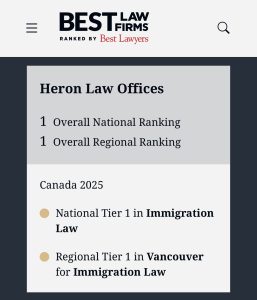
Image made by deepdreamgenerator.com with the prompt: “Outdoor skating rink decorated with lights.”
This decision involves six judicial review applications by three family members challenging the refusal of their work and study permit applications and reconsideration requests on the basis of being found inadmissible for misrepresentation, with one of the Applicant’s having submitted fraudulent transcripts in support of their study permit application.
The Applicants are citizens of the Philippines. The Principal Applicant (“Son”) applied for a study permit, while his mother and father (“Parents”) applied for work permits.
In April 2023, IRCC requested the Son to submit a letter of acceptance (“LOA”) from a designated learning institution (“DLI”). The Son submitted the requested document, and later, without his Parents’ knowledge, wrote to IRCC stating that he and his family had committed document fraud. He subsequently explained that he and his family had submitted forged transcripts to the DLI to obtain the LOA and that his Parents had instructed him to doctor his transcripts to make his grades appear more favourable.
In June 2023, IRCC sent the Applicants procedural fairness letters (“PFL”), outlining concerns about the genuineness of the Son’s transcripts.
The Parents responded to their PFLs, stating that the Son’s academic documents were genuine and they re-submitted the documents.
In September 2023, their applications were refused due to misrepresentation and the Applicants were found inadmissible to Canada for five years. The Global Case Management System (“GCMS”) notes state that the Applicants had “engaged in a joint enterprise to furnish non-bona transcripts to obtain an LOA and Study Permit for [the Son] to facilitate your family’s travel to Canada.”
In late September 2023, the Parents received a copy of the GCMS notes and claim that this is when they discovered that their Son had “self-sabotaged” his study permit application by using altered transcripts.
In October 2023, the Applicants submitted reconsideration requests. In November 2023, their reconsideration requests were refused, with the Officer writing: “I note that the family was given [a] chance to provide genuine documents but non [bona fide] doc[ument]s were submitted. The parents could not of [sic] been completely unaware of this submission and I reject this contention on their part that the son was acting completely of his own volition, that he produced on [sic] bona fide doc[ument]s, submitted them and then admitted to the fraud all on his own.”
The Applicants alleged that the refusals were unreasonable because the PFLs were deficient in that they did not alert them to the Officer’s specific concerns, and that the refusal of the reconsideration requests was unreasonable because the Officer relied on credibility findings without providing them an opportunity to respond.
At the hearing, counsel for the Applicants explained that these arguments were only being advanced by the Parents and that the Son was no longer seeking judicial review.
According to Justice Southcott, it was clear from the reconsideration decisions that the Officer took into account the mother’s affidavit dated 31 October 2023 and swearing that the Parents were not aware about the Son’s actions until they received the GCMS notes in September 2023; however, the Officer did not accept this explanation because by the time the reconsideration decisions were made, the Parents knew the case to be met and they had been given an opportunity to respond. Relying on Weldesenbet v. Canada (MCI), 2022 FC 1174, Justice Southcott found that any breach of procedural fairness arising from the PFLs had therefore been remedied.
Regarding the reconsideration decisions themselves, Justice Southcott relied on Alalami v. Canada (MCI), 2018 FC 328, finding at para 36 that: Regardless of the adequacy of the PFL, by the time of the Reconsideration Decisions, the Applicants (including the Parents) knew the case they had to meet, including the Officer’s concern that the Parents were complicit in the forgery and misrepresentation. The Applicants responded to the effect that the Parents had no knowledge of the Principal Applicant’s forgery. Even assuming the Officer’s resulting analysis to have involved an adverse credibility finding, I do not consider the principles of procedural fairness to have required the Officer to advise the Applicants that he did not accept their explanation and afford them a further opportunity to comment before arriving at the Reconsideration Decisions.
As a result, all six of the judicial review applications were dismissed.
See: Sampang v. Canada (Citizenship and Immigration), 2024 FC 1959,<https://decisions.fct-cf.gc.ca/fc-cf/decisions/en/item/527029/index.do>.
If you need legal advice regarding a work or study permit refusal or a reconsideration request, please contact Heron Law Offices to book a consultation with one of our experienced immigration lawyers.




